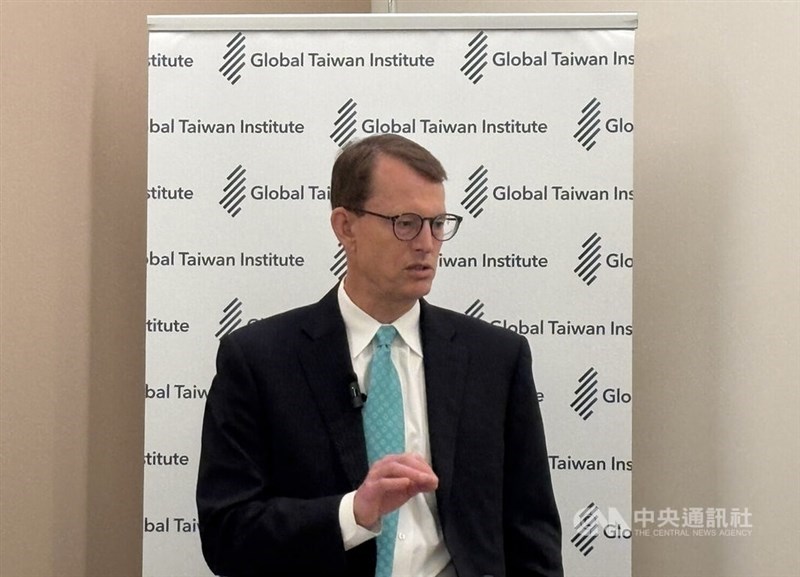Ex-US Navy intel chief advises strategic messaging amid 'first shot' dilemma

Washington, June 15 (CNA) A former U.S. Navy intelligence chief said Taiwan must take steps to avoid being blamed for escalation if it responds with force to Chinese naval incursions into its territorial waters.
The best way to handle violent tactical encounters is to shape the information space early -- exposing Chinese actions and framing them as aggressors, provocateurs, and a threat not just to Taiwan but to the entire region, former U.S. Navy intelligence chief Mike Studeman said Friday.
Studeman, who reportedly visited Taiwan in 2020 while serving as director of the J2 intelligence division at U.S. Indo-Pacific Command, making him one of the highest-ranking U.S. military officers to visit Taiwan in recent years, was asked by CNA about a tabletop wargame held in Taipei last week that simulated a 2030 scenario in which Chinese navy ships intrude into Taiwan's territorial waters amid escalating tensions.
In the wargame, which featured teams representing Taiwan, China, the United States and Japan, Taiwan chose not to immediately strike Chinese navy vessels that entered its territorial waters.
Instead, it deployed Coast Guard and Navy ships to shadow the intruders and positioned submarines in ambush zones northeast and southwest of the island and said this approach was guided by its principle of not firing the first shot.
"The moral high ground and legitimacy of any tactical actions will be contested in the information domain," said Studeman, who now works as a national security fellow at MITRE, a non-profit research group.
At the Taipei wargame on June 10-11, attended by former U.S. and Japanese defense officials, the U.S. officials said Taiwan might eventually need to open fire to expel Chinese intruders -- but emphasized the importance of giving advance warning before doing so.
Studeman said China has a broader propaganda reach, ready to portray itself as the victim of any Taiwan-initiated aggression.
"Worst case, Taiwan's actions could justify harsh countermeasures from Beijing across all domains to punish Taiwan," he added.
"I don't think we can easily predict what level of support political leaders (in Washington and Tokyo) might be willing to provide to Taipei, especially if the tactical interaction becomes a 'he said, she said.'"
In that regard, "Taiwan must repeatedly warn that China is pressing up to red lines that will require a strong Taiwan response," said the retired U.S. rear admiral.
He also advised Taiwan to clearly show it took all possible steps to avoid direct confrontation -- such as radio warnings, maneuvers, signaling, and warning shots -- while presenting video footage, radio call audio, map-based replays and other evidence documenting the People's Republic of China's persistent encroachments.
"Failure to demonstrate the appropriate use of strength and resolve at the right time in the right way will only invite deeper and unacceptable encroachments," Studeman warned.
Such developments could "ultimately compromise the defense system required to protect Taiwan's existence as a democracy," he said.
- Society
3 indicted for suspected fraud in egg procurement deals
08/28/2025 10:52 PM - Society
Taiwan to hold disaster response drills, test quake alerts in September
08/28/2025 09:36 PM - Business
Ground broken at TSMC Arizona industrial reclaimed water plant
08/28/2025 09:18 PM - Society
ER overcrowding top priority: Incoming health minister
08/28/2025 08:31 PM - Business
Taiwan's economy remains stable for 3rd straight month in July
08/28/2025 08:23 PM